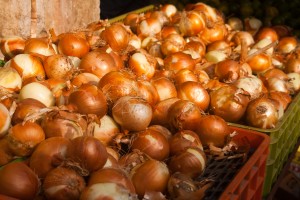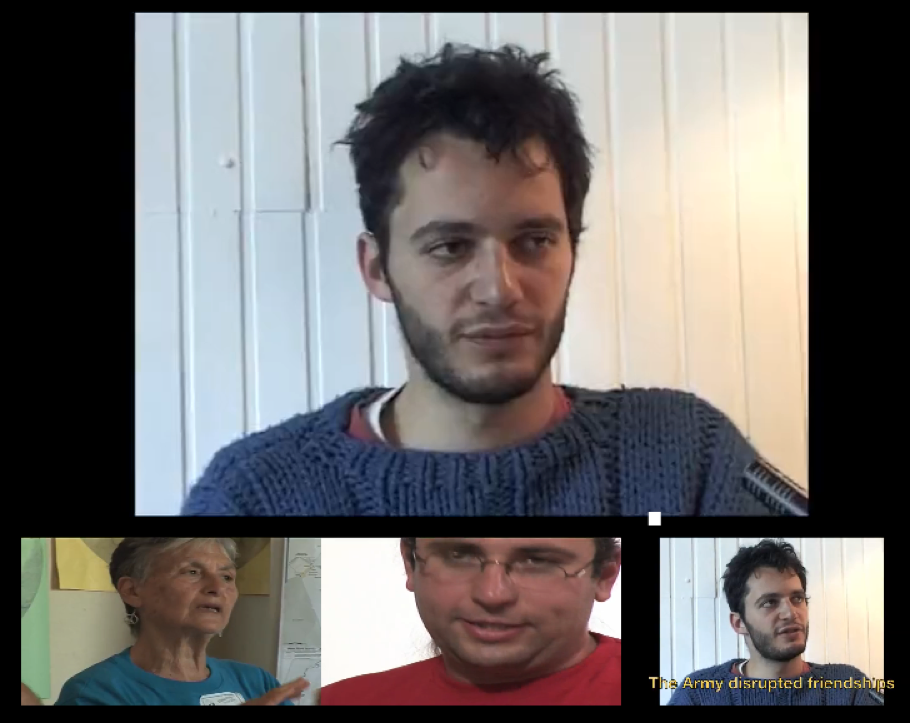The Only Democracy? » On The Ground Reports » Pay cheap, buy local: Israeli farmers strike for more foreign workers
Pay cheap, buy local: Israeli farmers strike for more foreign workers
By Audrey Farber
One great thing about Israel is that all the produce comes from nearby – whether Israeli territory or Palestinian territory or Syrian territory or Bedouin lands (I am trying very hard to abstain from political opining regarding where farmlands may or may not lie, but that is inherently impossible) – and I don’t have to worry about buying locally, something that concerns me greatly in the vast agro-industrial complex that characterizes the US.
But this strike threatens that singular comfort I have with living in Israel. I disagree with just about every ounce of Israeli foreign and domestic policy, but I really like that the food I buy is grown and raised less than five hours from my apartment. But now, Israeli farmers are on strike to increase the quota of foreign workers permitted to enter the country, and to make it easier for the farmers to employ them. (See also this article.)
The government is resisting these changes, presumably because Thai farmworkers aren’t Jewish, and probably never were, and likely never will be. Like everyone else, they threaten the precious and rapidly dwindling Jewish demographic majority in this country. (The Israeli government even tried to deport hundreds of Israel-born children this summer, the offspring of foreign workers.) But unlike, say, Palestinian citizens of Israel or recent Russian immigrants who aren’t as Jewish as they say they are, foreign workers are an easy target because it’s a subset of the population that no one seems to care about until they’re gone. And they never make a stink. In that sense, this strongly resembles the immigration debate in the US. Thai and Filipino workers – like Mexican, and Central and South American workers – are willing to undertake the thankless menial labor that Israelis and Americans, spoiled brats that we are, refuse.
So farmers hope these strikes, and the resulting lowered-supply-induced price increases they will create, will lead to popular pressure on the government (this is the democracy part) to allow more foreign workers into Israel. These foreign workers will continue grow the local produce that we have all come to know and love, and yet their very presence will perpetuate the vicious cycle of Israeli xenophobia.
One answer is, of course, that rather than allowing Thai workers in and killing the environment with all those long plane flights, the Israeli authorities could simply reopen the Territories and Israeli cheap labor could come from the oPT. But that is a security threat: farmers could be terrorists. So obviously the best solution is to forbid the entrance into Israel of anyone who isn’t Jewish, thus understaffing Israel’s agricultural sector (comprising some 2.6% of Israeli GDP and 2% of labor) and import produce from abroad. They are thereby killing, in one fell swoop, local economies, local food, and the hopes and dreams of generations of young socialist-Zionists to move to the promised land, drain swamps, and turn forgotten wastelands into milk and honey. Oh, and any possibility for ethnic-religious diversity. So really, the world makes sense once again.
Filed under: On The Ground Reports · Tags: farming, foreign workers, Palestinian labor, strikes, xenophobia









 “You have a choice! Israeli Anti-Militarists Speak”
“You have a choice! Israeli Anti-Militarists Speak”